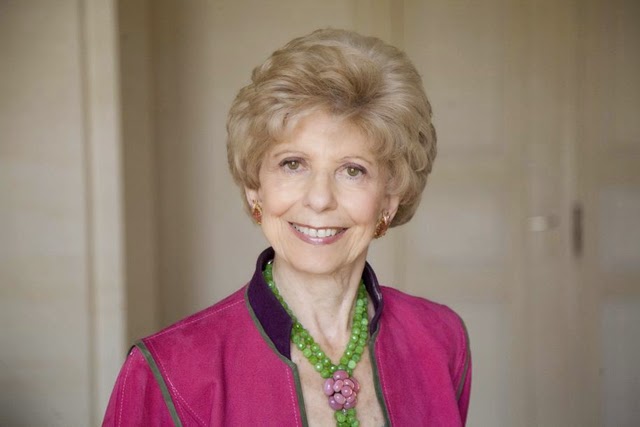
The French historian and Russia specialist Hélène Carrère d’Encausse was in Geneva Tuesday
Tribune De Geneve Translated from French by Tom Winter
According to Hélène Carrère d’Encausse, Europe is wrong right down the line in its management of the Ukraine crisis and in its relations with Russia.
The French historian and Russia specialist Hélène Carrère d’Encausse was passing through Geneva Tuesday, invited by the European Center of Culture, The Society of Members of the Legion of Honor, and the Ceercle Français of Geneva. She discussed the consequences of the Ukrainian crisis. Known for her plain speaking and independent spirit, the academician did not mince words.
Tribune of Geneva: Should we be worried about the reprise of fighting around the Donetsk airport?
The issue is not the Donetsk airport. Behind the assault launched by the Ukrainian government and its president Poroshenko there is mainly the desire to see the West and NATO get more deeply involved, by claiming a Russian intervention.
TG: What should Europe do to get out of this impasse? At what moment was it wrong?
D'Encausse: Europe has gotten it completely wrong since the Orange Revolution of 2004. The European Commission did not work well. It was incapable of understanding the situation. It never took into account the actual elements. It dealt with Ukraine, but not with Russia. Over the years, it has gotten worse. The Eastern Partnership, which excluded the Russians, was a rather bad affair. When Vladimir Putin stated a few days back, that he respects and recognizes the territorial integrity of Ukraine, Europe should have woken up. It was a fundamental declaration, but nobody moved.
TG: What should have been done?
D'Encausse: It was the time to make a gesture, by lifting some sanctions. Instead, they stayed on the same line. I believe François Hollande has understood that the European Commission has made nothing but blunders (sottises! —tr). It’s up to him, and to Chancellor Angela Merkel to get back in charge. He had already made a start at the commemoration of the Normandy landing, but he got no support. It is necessary to restart a mediation led by France and Germany, and it is especially necessary that the United States does not get involved.
TG: What room does Vladimir Putin have for maneuver?
D'Encausse: Practically none. He reacts to what is happening by taking advantage of circumstances. On one side, there are the sanctions. On the other, there are the Russian speakers in eastern Ukraine who seek his help. He can’t abandon them, and his public opinion wouldn’t forgive him. There lies the problem. And that’s why he awaits some gesture from the West. A negotiation takes two. He has said he will not touch the territoriality of Ukraine. He has to wait for president Poroshenko to realize that he can’t get into NATO. It is necessary to find a status for Eastern Ukraine.
TG: What will be the effect of the economic sanctions? Is the Russian economy in danger?
D'Encausse: It is in difficulty, but the fallout from the drop in the price of oil is much more serious than the sanctions. Its economy is not diversified enough. And there lies the big reponsibility of Putin and Medvedev. They have not conducted the necessary reforms. Russia is too dependent on oil income. It is a real problem. But this didn’t happen on the level of Europe; the ones responsible are the U.S. and Saudi Arabia.
TG: What are the chances of success for the meeting on Syria organized by Moscow at the end of the month?
D'Encausse: There are currently two issues where Russia can play a major role: the Syrian issue, and the issue of a nuclear Iran. Insofar as the negotiations are very important, there is an interest in coming up with a certain serenity in relations with Russia. This could also help resolve the Ukrainian problem. As for what concerns Syria, it is clear that there is an evolution in what the western world makes of the situation. One considers that Bashar el-Assad is not the main danger. That is the Russian position and the one that discussions can get organized. This meeting is important. We’ll have to see what comes of it. Five presumed Chechen terrorists have been arrested at Beziers in France Tuesday.
TG: Is that what could lead France and Europe to review their cooperation with Russia?
D'Encausse: It is clear that France must reboot its cooperation with Russia. The sanctions have stopped everything. Russia is facing the same security challenge as those in the west. The departure of troops out of Afghanistan worries them a lot. They are going to be threatened right on their borders. The Europeans therefore have an interest in reflecting on the problem of the struggle against terrorism along with Russia, but also with Iran, which is faced with the same problem



_jpg/250px-ElbeDay1945_(NARA_ww2-121).jpg)





